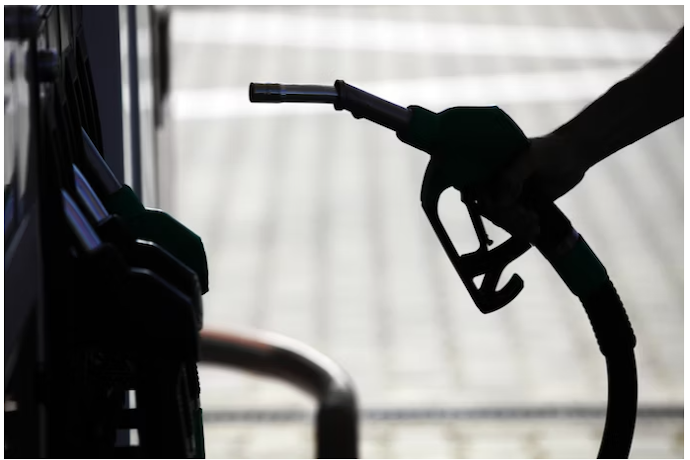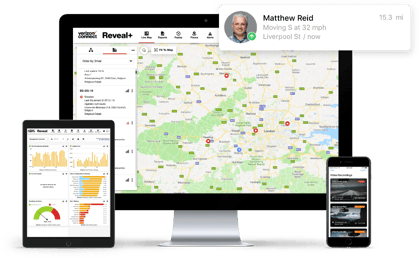Tips on using telematics to reduce fuel costs
Fleets have been faced with a whole array of challenges during the pandemic. For many, their supply chains will have been...
Read more
Fuel is a crucial cost when it comes to the total operating budget for any fleet. Given the impact that fuel can have on the bottom line, curbing costs is a priority amongst fleet managers, with 71% stating that it is one of the top challenges they face every day (1).
By providing specialised training, managers can help drivers learn how to reduce fuel consumption and, in turn, fuel costs for the company. Find out some steps fleet managers can take to educate their drivers on improving fuel economy as well as how fleet management technology can help achieve a culture of fuel efficiency.
Educating your team about good driving habits can help to reduce fuel consumption. By discussing responsible driving, you can help them become more aware of how their driving impacts both fuel economy and safety. Additionally, you can also take this opportunity to show how such habits can contribute to improved job security by making the company more profitable as well as the positive impact these habits have on the environment through reduced greenhouse gas emissions.
Here are a few points you can incorporate into your training session for drivers:
By keeping an eye on upcoming traffic conditions, drivers can anticipate having to slow down. It’s more efficient to keep a HGV in constant motion than to accelerate from a complete stop. Staying in constant motion also reduces the number of gear changes needed. Checking for any hazards not only improves efficiency, it’s also important for safety reasons.
Driving at high speeds can have several negative consequences, including additional stress placed on the engine, speeding fines and an increased risk of accidents occurring. Speeding can also decrease the fuel economy of a vehicle.
Idling vehicles can use up more fuel than you might think. The amount of fuel a vehicle consumes while idling varies depending on factors such as its weight, engine size and the type of fuel it uses. ‘Idling can use up to 2 litres of fuel per hour, emitting over 5.26kg of CO2’. (2)
Using an air conditioner while idling can drain fuel economy even more. It’s clear that costs can quickly add up, so be sure to consider whether you really need your engine running. If not, turn it off.
If a fuel tank is filled to the brim, it can easily overflow when the fuel is heated by the sun or by fuel returned from the engine. This is not only dangerous to others on the road, it’s also wasteful.
Make sure tyres are kept at the correct pressure to help improve fuel economy and their life span. A reduction in the tyre pressure can also increase fuel consumption and reduce its service life. This is why maintenance is vital to safer and more efficient driving. Properly caring for your tyres also helps to reduce the chance of an accident caused by a blowout.
If stopping to rest, it’s important to park HGVs in a way that doesn’t require a lot of manoeuvring with a cold engine, as this can use up a lot of fuel. In addition, parking in the shade can help to cut down on the use of air conditioning systems during the summer.
Keeping your fleet vehicle at a constant speed is a simple way to improve fuel efficiency. When possible, use cruise control for highway driving.
It’s important to make sure air filters and spark plugs are replaced at the recommended intervals. Preventative maintenance can also help fleet managers to recognise potential issues with fuel injection and oxygen sensors.
In addition to implementing a driver training programme, you can use fleet management technology to create a more fuel-efficient fleet.
As part of a fleetwide management system, managers can use these tips to reduce overall fuel usage and save thousands of pounds. Not only does reducing fuel consumption boost profitability, it also helps increase efficiency and improve a company’s bottom line.
To learn more about how fleet management technology can positively impact fuel spending, download our eBook 'Keep Fuel Costs under Control' and discover practical ways to lower fuel costs.
Tags: Cost control




Find out how our platform gives you the visibility you need to get more done.
Fleets have been faced with a whole array of challenges during the pandemic. For many, their supply chains will have been...
Read moreImproving fuel efficiency is crucial to fleet management. Discover how fuel monitoring with Verizon Connect can help improve...
Read moreFuel is never going to be cheap and buying less will always improve your bottom line. Make sure you're following these...
Read moreFuel is often the biggest operating expense for most fleets. And with prices at the pump fluctuating, it’s not always...
Read more